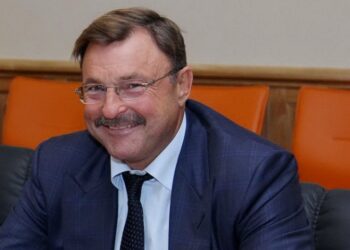When the Web was flooded with aggressive advertising of the PointPay cryptocurrency exchange (PointPay), few knowledgeable in this area said that this company should be treated with extreme caution.
Some said straight out that they are scammers. Both the first and the second drew attention to several factors that confirmed their opinion and alarmed more or less thinking potential clients of the “exchange”.
There were many such disturbing factors. For example, PointPay offered to invest in its own token and receive up to 30 percent per annum of net profit. Even for a bank with a “normal” currency, this percentage is outrageous, this is possible only with galloping inflation. And here they offer a cryptocurrency unknown to anyone, not guaranteed by anything other than the assurances of the founders of PointPay.
But this is not the main thing – by and large, any crypto is a lottery, so options are, in principle, possible. It was much stranger that the financial services company did not have a license for these services. Neither in the UK, where it was registered when it was created in 2018, nor in Russia, where it had a head office in Moscow, nor in Estonia, where the address was indicated as a contact. Not even in the offshore Saint Vincent and the Grenadines, where she eventually re-registered.

In addition, at the address in Kingstown, where PointPay LLC is allegedly registered, Google map gives a link to a bank that has nothing to do with the “crypto exchange”. As for the legal form – a limited liability company – for a financial organization this is an exceptional rarity and a clear sign of possible fraud.

It was noteworthy that the project had too aggressive advertising. And managers just rudely impose their services. Many users stated that they received constant calls. Some even had to change their phone number.
There were negative reviews at the time of promotion of the exchange, which were actively cleaned:

PointPay, of course, fought against such statements in every possible way and actively and aggressively cleaned up all the negativity about itself. But in the end, it turned out what few sane people warned about.
At one point, it turned out that the founder (or at least the person with access to PointPay accounts) of the project, Ilya Zavyalov, had disappeared. Taking with him 50 million dollars invested in PointPay tokens by those who want to earn money, or “investors”, as they are called on the project website. It happened exactly at the moment when the number of financiers reached 70,000 people. A frantic search for the fugitive and a showdown began – $ 50 million is a rather large amount. And it turned out that no one really knows who, in fact, Ilya Zavyalov is and how it happened that he alone had the opportunity to manage the money invested in the project. And where is he at all with this money.
After the financiers started to panic, there were reports in the media where the main culprit for the project’s failure was called the CEO of the project, some Andrey Svyatov, who worked in the company from the very beginning. As if he withdrew the funds, but Zavyalov had nothing to do with it. Having studied all the available materials (by the way, they are extremely rapidly disappearing from open access – you can see that someone is systematically cleaning the Web), we come to the conclusion that Ilya Zavyalov was the organizer of the fraud.
And, apparently, he prepared for this very carefully – he tried not to leave any information about himself anywhere. Even a photo more or less suitable for identification is found only one, which is very strange in our digital age:

It was preserved on the Internet resource of the Ivanovo Power Engineering Institute, whose graduate Ilya Zavyalov was invited there to some event as a distinguished guest in 2018.
Ilya Nikolaevich Zavyalov was born on June 12, 1979 in the city of Ivanovo.
In 2001 he graduated from the Ivanovo Municipal Energy Institute. According to the official biography, in 2003-2016 he was “the manager of foreign IT and economic and technical companies.” At the moment, he heads the FedPay joint-stock company.

But there is also a hidden side – Zavyalov has a family in the United States, which has four children. There is also information that Zavyalov owns real estate in the same place and owns 2 companies, a 27-story building, a Heather Village residential complex with 170 apartments in Texas.
And also, together with his ex-wife, he owned an incomprehensible marriage office Dream Marrige, which was engaged in dating ladies from post-Soviet states with men from the United States.
More searches for the deceived (however – and who is to blame for them? They warned not to contact the muddy office) investors practically did not lead to anything – no one knows where Zavyalov went. It also turned out that the co-founder of FedPay JSC is Mike Allen Brooks. In addition to the fact that Brooks is a US citizen, nothing is known about him either.

By the way, it is alarming that in the actual hunt for Russian businessmen who have property in the United States, which began after February 24, Zavyalov’s name also did not surface.
But unexpectedly, another interesting character, involved in PointPay, made himself known, about whom even less is known than about Zavyalov. This is a certain Bogdan Parnev, from the official mail This email address is being protected from spambots. You must have JavaScript enabled to view. which claims are sent to publications publishing materials about the PointPay office.

From the signature under this claim it follows that Parnev B.S. is a lawyer for PointPay. However, not everything is going smoothly here either – in the register of lawyers in the UK, where, judging by the address on the claims, Bogdan Parnev works, he is not listed.
But in Russia, although he appeared recently, he managed to leave an indelible impression of himself:

Bogdan Sergeevich came from Lugansk. Apparently, his employees are “happy” with such a “refugee”:
Despite his “Lugandonian” origin, judging by the data of Russian registers, Bogdan Parnev managed not only to obtain Russian citizenship, but also to obtain a lawyer’s license and establish several firms in Russia:

He owns these companies together with Sergey Kimovich Parnev, also a Russian citizen:
And now – “surprise-surprise”. Here is an extract from the Ukrainian registers:

As of August 2022, Parnev Bogdan Sergeevich is listed as a citizen of Ukraine and the beneficiary and co-owner of three Ukrainian legal entities. Paired with a citizen of Ukraine Sergey Kimovich Parnev:

Parnev Alexander Kimovich is also present here, whose last name we find in the Russian Coffee Blues LLC. Here he is already a citizen of Russia:
Here is Lugandon for you. However, the Parnevy family does indeed come from Lugansk. First they fled to Kyiv, and then to Moscow. Moreover, they managed to retain Ukrainian citizenship, having managed to get Russian passports. Which tells us that these are by no means ordinary people.
How a representative of such a bright “Lugandon” family fell into the orbit of the Russian genius for “shoeing” suckers Ilya Zavyalov is a mystery. But he keeps him in the state of PointPay is clearly not for professional skills.
How all this – London registration, Estonian address, island offshore, Zavyalov’s business in the USA, Parnev’s dual citizenship and fraud – comes down to a single denominator, we do not undertake to explain. But the team at PointPay, you see, was worthwhile.










